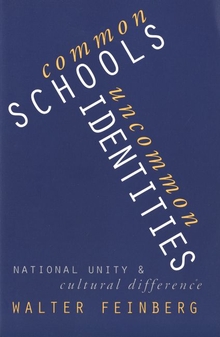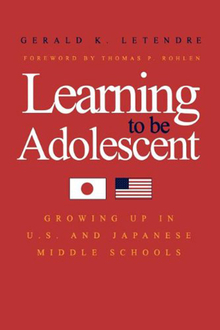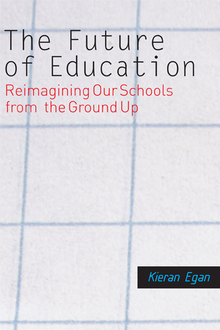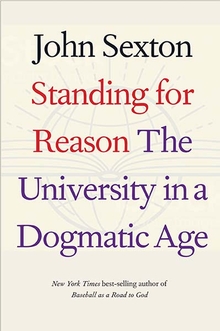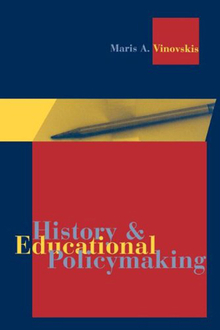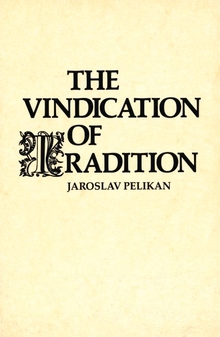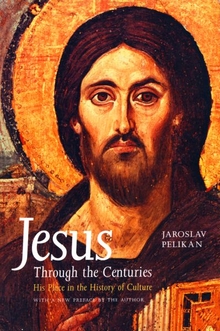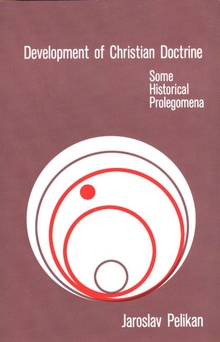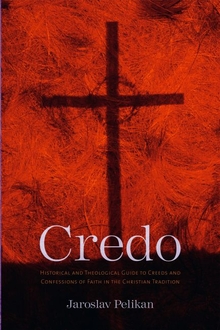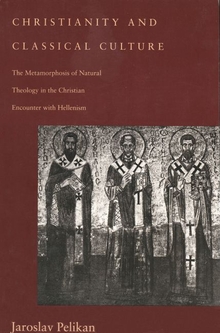The Idea of the University
WARNING
You are viewing an older version of the Yalebooks website. Please visit out new website with more updated information and a better user experience: https://www.yalebooks.com
A Reexamination
Jaroslav Pelikan
Out of Print
The crisis in university education has been the subject of vigorous debate in recent years. In this eloquent and deeply personal book, a distinguished scholar reflects on the character and aims of the university, assessing its guiding principles, its practical functions, and its role in society.
Jaroslav Pelikan provides a unique perspective on the university today by reexamining it in light of John Henry Cardinal Newman’s 150-year old classic The Idea of a University and showing how Cardinal Newman’s ideas both illuminate and differ from current problems facing higher education. Pelikan begins by affirming the validity of Newman’s first principle: that knowledge must be an end in itself. He goes on to make the case for the inseparability of research and teaching on both intellectual and practical grounds, stressing the virtues—free inquiry, scholarly honesty, civility in discourse, toleration of diverse beliefs and values, and trust in rationality and public verifiability—that must be practiced and taught by the university. He discusses the business of the university—the advancement of knowledge through research, the extension and interpretation of knowledge through undergraduate and graduate teaching, the preservation of knowledge in libraries, museums, and galleries, and the diffusion of knowledge through scholarly publishing. And he argues that be performing these tasks, by developing closer ties with other schools at all levels, and by involving the community in lifelong education, the university will make its greatest contribution to society.
Jaroslav Pelikan is Sterling Professor of History at Yale University. He is the author of, among other books, The Christian Tradition and Jesus Through the Centuries. His scholarly accomplishments have been recognized by medals and awards from many scholarly societies and institutions, by honorary degrees from universities all over the world, and by the Jefferson Award of the National Endowment for the Humanities, the highest honor conferred by the Federal Government on a scholar in the Humanities.
"The true crisis of the university today lies not in financial exigencies, political assaults from the left and right, or the myopia of modern life; it lies in the crisis of confidence within the university itself about its abiding nature and purpose. Jaroslav Pelikan's love of liberal learning, the brilliance of his scholarship, and his broad experience in the pleasures and perils of academic administration, fit him preeminently to voice the idea of the university in our time."—Benno C. Schmidt, Jr., President, Yale University
"Jaroslav Pelikan himself embodies, in many ways, the idea of the university. The powers of the liberally educated mind that Newman praised—judgement, clearsightedness, sagacity, philosophical reach, and intellectual self-possession—all shine forth from this book. Pelikan not only engages the tradition of liberal education in a brilliant, literal conversation (by means of this dialogue with Newman) but also sheds light on the path that will lead us out of the thickets of our current miasmic debates about higher education."—James T. Laney, President, Emory University
"With wisdom born of a lifetime as eminent scholar and many years as academic leader, Jaroslav Pelikan has produced a powerful analysis of what a university is and ought to be. He explains why universities, some now in crisis, are indispensable to a modern society. This is a splendid and important book."—John Brademas, President Emeritus, New York University
"Pelikan is clearly a thoroughly informed and astute commentator on the university in America. His splendid book—sensible, learned, and dead on target—will do a great deal of good."—Timothy S. Healy, President, NY Public Library
"His excellent book could not be more timely. Pelikan, a distinguished scholar and university administrator, has as its aim a fresh assessment of the role and value of the university in society. His conclusions are extraordinarily important because of the pressures on universities on both sides of the Atlantic from left and right alike. . . . By reconsidering Newman's views Pelikan gives a thoughtful, eloquent restatement of the university ideal, reminding us at this crucial moment in the history of higher education that to cut facilities and standards in the universities is to switch out the streetlamps on the road to progress."—Financial Times
"Pelikan sharpens and enlarges Newman's definitions. . . . Though our contemporary universities are not literally in flames, a spate of critical books, financial and athletic scandals, multimillion- dollar deficits and a coming radical change in the racial and ethnic makeup of the student population have thrown the university into crisis—in Pelikan's judgment, `a crisis of confidence which is also a crisis of self-confidence.' His response, with Newman, is to force the discussion back to first principles. Just what is a university supposed to do?"—Raymond A. Schroth, S.J., New York Newsday
"Sursum corda—lift up your heart—when Jaroslav Pelikan's book lands on your lap. . . . [Pelikan] reminds us that Cardinal Newman still speaks to us. . . . [The book] is written in a style whose clarity is the next best thing to elegance, and expounded with the grace that flows from a cultivated as well as a learned mind."—Noel Annan, New York Times Book Review
"Without sounding pious, Mr. Pelikan, a professor at the Yale Divinity School, gracefully defends the idea of the liberal university, including 'the embalming of dead genius,' the imperative to publish of perish and the university's duty toward the community at large."—New York Times Book Review, Christmas Book Issue
"A poignant encomium to the research university, its intellectual achievement and its social values."—Norman F. Cantor, Newsday
"This reflective book should be required reading for shapers of the university, and will be a powerful stimulus for readers who wish to reacquaint themselves with Newman."—Publisher's Weekly
"Pelikan reminds us of what the university ideally should be, and gently suggests where it falls short. His book will serve to encourage some serious thought about reform."—Geoffrey Durrant, Toronto Globe and Mail
"The Idea of the University: A Reexamination says what will be, for traditionalists, all the right things in the right ways, and without a moment's lapse into preciousness, antiquarianism or empty nostalgia. . . . Pelikan's book is so sensible, so reasonable, so subtly argued, so eager to cast a wide net of consensus, that the resolute classicism of its message is at times muted."—Edwin M. Yoder, Washington Post Book World
"Pelikan has done an excellent job."—George M. Marsden, The Christian Century
"Without sounding pious, Mr. Pelikan, a professor at the Yale Divinity School, gracefully defends the idea of the liberal university, including "the embalming of dead genius," the imperative to publish or perish and the university's duty toward the community at large."—New York Times Book Review
"Pelikan . . . sets out in this book to clarify the fundamental nature and enduring mission of the modern university . . . deserves a wide readership."—Francis Oakley, America
"All of us in higher education are enormously grateful to Professor Jaroslav Pelikan's thoughtful and inspiring reexamination of the essential wisdom of Newman's work. . . . well worth reading for both enlightenment and inspiration."—Theodore M. Hesburgh, C.S.C. Catholic Historical Review
"This is an important work by an outstanding scholar at a time when there is vigorous debate about the academic priorities of universities and their role in society."—Thomas Mitchel, The Irish Times
"A well-written book. . . . It compares favorably with classics. . . which promote an education for living through a liberal arts dominated curriculum of the university."—Choice
"For the reader who wants a thoughtful summation of the best conventional wisdom about universities in America, there exists no more lucid or convenient handbook."—James Turner, First Things
"As always, Pelikan brings remarkable scholarly insight to his task."—The Clergy Journal
Publication Date: April 22, 1992


